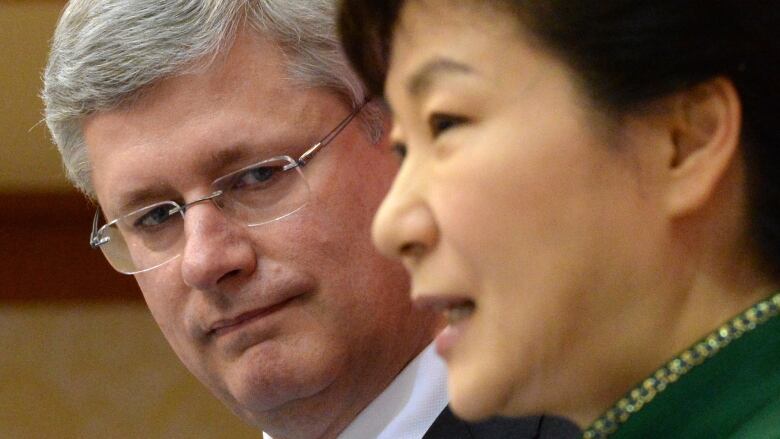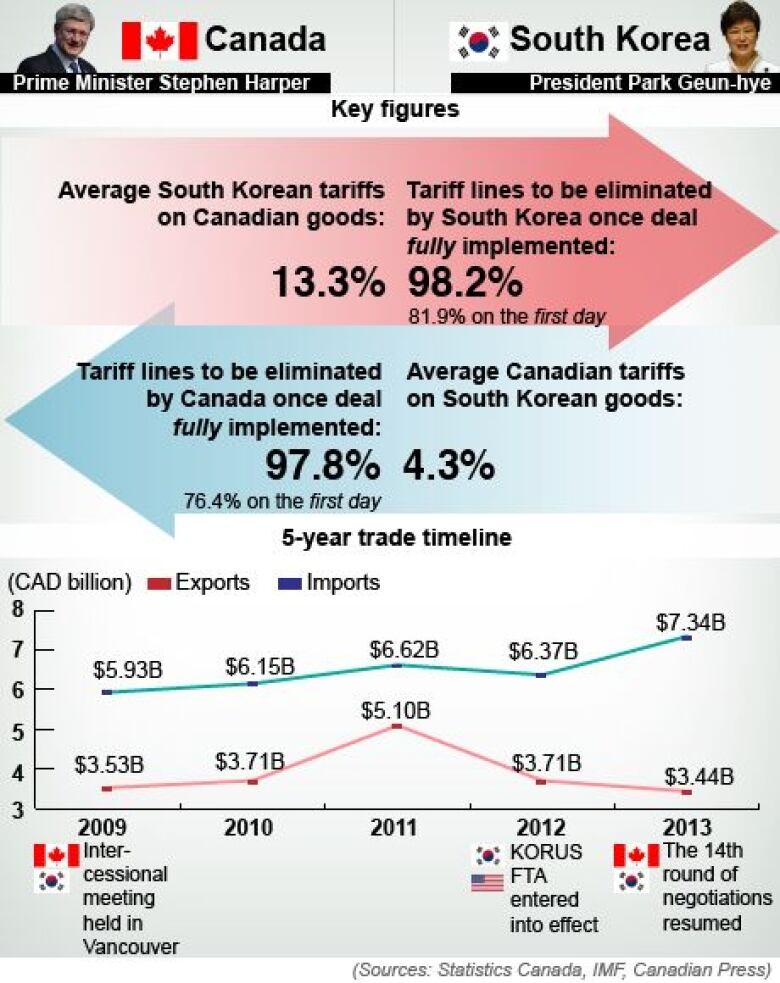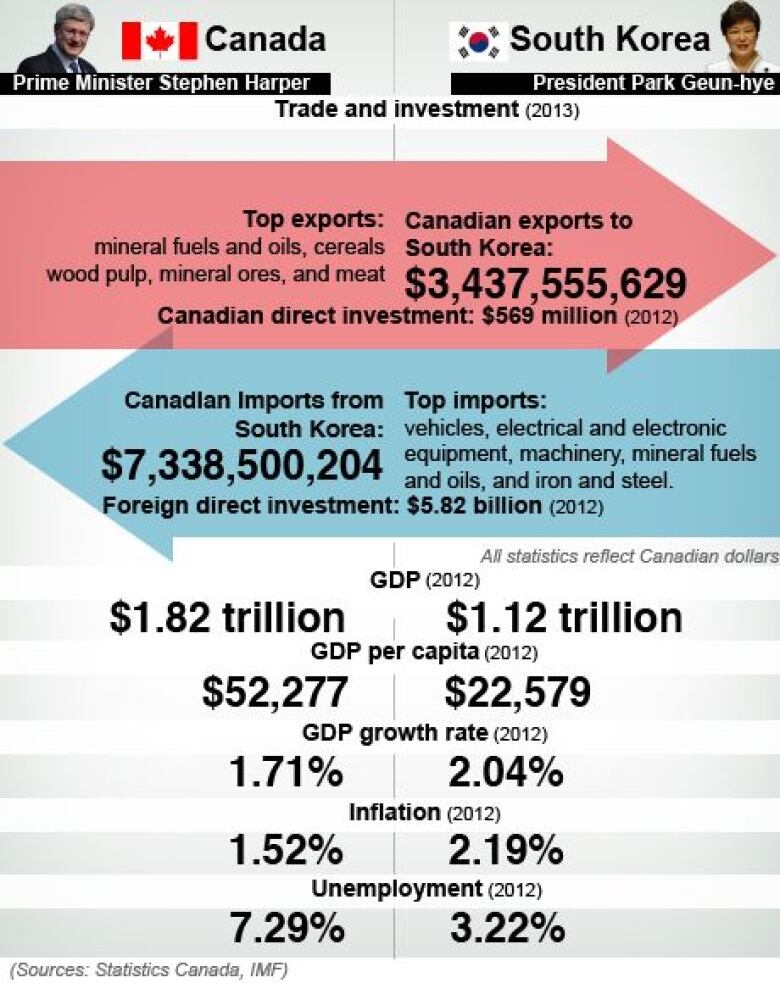South Korea deal benefits farmers more than consumers
Canadians can expect lower prices on South Korean vehicles, appliances and electronics

The Canada-SouthKorea free trade agreement, which is expected to remove nearly all tariffs between the two countries,has been well received by various sectors of the Canadian economy with the exception of the automotive industry, which has raised concerns about the potential fortens of thousands of manufacturing jobs lost.
The government insists the effects of removing Canadian tariffs on South Korean cars would be "negligible," citing a 2012 study conducted for the Department of Foreign Affairs that shows the potential for job losses in the hundredsnot tens of thousands.
- Stephen Harper takes on Ford over South Korea trade deal
- Canada-South Korea free trade agreement:Key facts and figures
Canadian exporters of agricultural products such as beef, pork, canola and grainswill be among the winners in thefree trade deal with South Korea, but the benefits to Canadian consumers may not be as striking.
However, International Trade Minister Ed Fast toldCBCNews Network's Power & Politics on Tuesdaythat the elimination of tariffs would be good for Canadian consumers.
"We're going to see better value for the consumer, there will be greater choice for our consumers. If you ask consumers on the street, 'Would you like to pay a little bit less for your TVs that you buy?'they would say absolutely yes."
Here are some of theproducts imported from South Korea that Canadian consumers couldexpect to pay less for:
- Vehicles:Canada will drop its 6.1 per cent tariff on imports of South Korean vehicles over a three-year period, with the first cut coming once the agreement is in force. Two years after the agreement is in effect, tariffs will be completely eliminated, whichmeansCanadians can expect prices to come down on South Korean-made makes such as Kiaand Hyundai.
- Appliances: Canada will eliminate tariffs thatcurrently run up to eightper cent on major appliances within three to five years. That means Canadians can expect to pay less for refrigerators, stoves, washers and dryers made by LG and other South Koreanbrands.
- Electronics:Duties run up to 14 per cent on consumer electronics imported from South Korea. Under the new free trade agreement, Canada will drop its tariffs over three to five years,and Canadians can expect to see prices come down ondigital cameras, video camcordersand TVs made bySamsung and others in South Korea.
- Apparel and footwear: Canadians can expect to pay less for clothes and shoes made in South Korea once duties that currently run up to 20 per cent are removed over a period of three to 11 years.
While cars and major appliances figure on the list of top 25 products Canada imports from South Korea, consumer electronics, clothes and shoes donot, because Canada does not import them in significant amounts.
South Korean consumers
When it comes to paying less for imported goods, consumers inSouth Koreamay come out a little further ahead than Canadian consumers.Under the new trade deal, South Korean shoppers couldpay less on a greater array offood products.
Here are some of the products exportedfrom Canada that South Korean consumers couldexpect to pay less for:
- Vehicles: As soon as the agreement comes into force, South Korea will drop all existing tariffs on imports of Canadian vehicles. Current duties run up to eightper cent.
- Fish and seafood
- Leather clothing
- Beef, pork, canola and grains
- Frozen french fries
- Maple sugar
- Rye whisky
- Ice wine
- Chickpeas and lentils
The prospect of South Korea dropping its tariffs, which run up to 27 per cent, on chickpeas,primarily grown in Saskatchewan, did not go unnoticed by Premier Brad Wall, who thought it important enough to highlight in a post on Twitter.
Consumers will not feel the savings for some time to come, as there will have to be a legal review of the final trade agreement followed by translation into Korean, English, and French before it is tabled in Parliament and then ratified by both governments.
While it isnot known how long that could take,the Canadian government hopes to have the agreement come into force "as soon as possible."














_(720p).jpg)


 OFFICIAL HD MUSIC VIDEO.jpg)
.jpg)



























































































